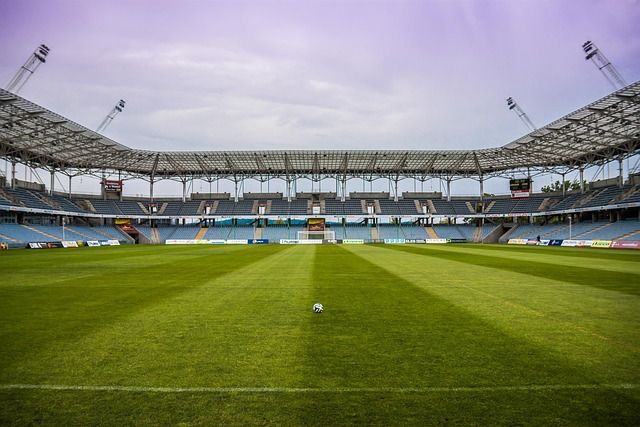Independent of any sports organisation, the Court of Arbitration for Sport (CAS) provides services to facilitate the resolution of sports-related disputes via arbitration or mediation in accordance with procedural rules tailored to the unique requirements of the sports industry. The CAS was established in 1984 and is governed by the International Council of Arbitration for Sport (ICAS) in terms of administration and finances. The location of its headquarters is in Lausanne, Switzerland.
Parties engage in mediation with the assistance of a third party, referred to as a mediator, in an effort to resolve their dispute amicably. In essence, it differs from arbitration in that the agreements signed by the parties are not enforceable, the proceedings are under the control of the parties, and the formalities are not adhered to. In this article, CAS Mediation, we take a look at the mechanism involved.
Free Initial Telephone Discussion
For a free initial discussion with a member of our New Enquiries Team, get in touch with us today. We are experienced in dealing with all the legal aspects of sports mediation, and once instructed, we will review your situation and discuss the options open to you in a clear and approachable manner. Early expert legal assistance can help ensure you are on the best possible footing from the start and also avoid the stress of dealing with these issues on your own. Simply call us on 0345 901 0445 or click here to make a free enquiry and a member of the team will get back to you.
What types of cases can be brought before CAS?
Commercial disputes (e.g., media rights, sponsorship agreements, transfer regulations, and employment matters) and sport-specific disputes (e.g., doping, eligibility, accidents, or incidents on the pitch) are among the many sports-related issues that the CAS is authorised to adjudicate. The only requirement is that the disagreement must be directly or indirectly related to sports. Sports law is often described by some commentators as an “amalgamation” of various legal disciplines due to the fact that, in actuality, sport-related disputes intersect with numerous legal disciplines. As a result, legal issues may arise in the context of sports disputes, encompassing criminal law, intellectual property law, competition law, association law, contract law, tort law, company law, and intellectual property law, among others.
What are the advantages of using CAS mediation?
It is modified for sporting use. Mediation is an alternative dispute resolution method that has demonstrated efficacy in jurisdictions where it is implemented. An essential innovation, its incorporation into sports represents a natural progression towards and safeguarding of the principles that regulate equitable competition and mutual understanding. Opting for mediators who possess expertise in both sport and negotiation enables the creation of practical resolutions to conflicts through the provision of sport-specific solutions.
- It is adaptable and straightforward. The procedure for mediation is informal. In essence, the process involves the parties mutually selecting their own mediator and establishing the guidelines that regulate the proceeding.
- It operates rapidly. The typical duration of mediation proceedings is ninety days, commencing from the moment the request is submitted. A valid reason-based extension to this provision may only be granted by the President of the CAS. This extremely brief time frame is an attempt at avoiding negotiations that one party is using in bad faith as a means of delaying proceedings. Furthermore, because arbitration and mediation are governed by the same jurisdiction, it is feasible to transition from one to the other in the event of failure, which has numerous benefits.
- It is kept private. All parties, the mediator, and other individuals participating in mediation proceedings have an absolute obligation to maintain confidentiality. Subject to legal restrictions, information obtained from the proceedings may not be disclosed to another arbitral or judicial body. In the case where one of the parties fails to honour its obligations, one of these bodies may only consider the settlement.
- The cost is reasonable. One of the objectives of the CAS is to provide members of the international sporting family with a cost-effective and expeditious dispute resolution mechanism.
What happens if the parties can’t agree at mediation?
When a dispute cannot be resolved through mediation, all parties involved may opt to resolve the matter through arbitration, on the condition that they have an arbitration agreement or clause in place.
The mediator shall not take an appointment as an arbitrator in any arbitral proceedings involving the parties involved in the same dispute if mediation fails to resolve the dispute. Nevertheless, in the event that all parties have explicitly consented to this in writing following the conclusion of the mediation process, the mediator may proceed to arbitrate the same dispute and render an arbitral award in adherence to the CAS Arbitration Rules (“Med-Arb procedure”). Such mediator can only act as an arbitrator if she/he is also on the list of CAS arbitrators.
How we can help
We have a proven track record of helping clients deal with the process involved in sports mediation. We will guide you diligently and ensure all checks are carried out swiftly and efficiently and we firmly believe that with the right solicitors by your side, the entire process will seem more manageable and far less daunting. You can read more about the range of sports law services we offer by clicking here: https://blackstonesolicitorsltd.co.uk/sports-law/
How to Contact Our Sports Solicitors
It is important for you to be well informed about the issues and possible implications of dealing with mediation in sports. However, expert legal support is crucial in terms of ensuring a positive outcome to your case.
To speak to our Sports solicitors today, simply call us on 0345 901 0445, or click here to make a free enquiry. We are well known across the country and can assist wherever you are based. We also have offices based in Cheshire and London.
Disclaimer: This article provides general information only and does not constitute legal advice on any individual circumstances.



